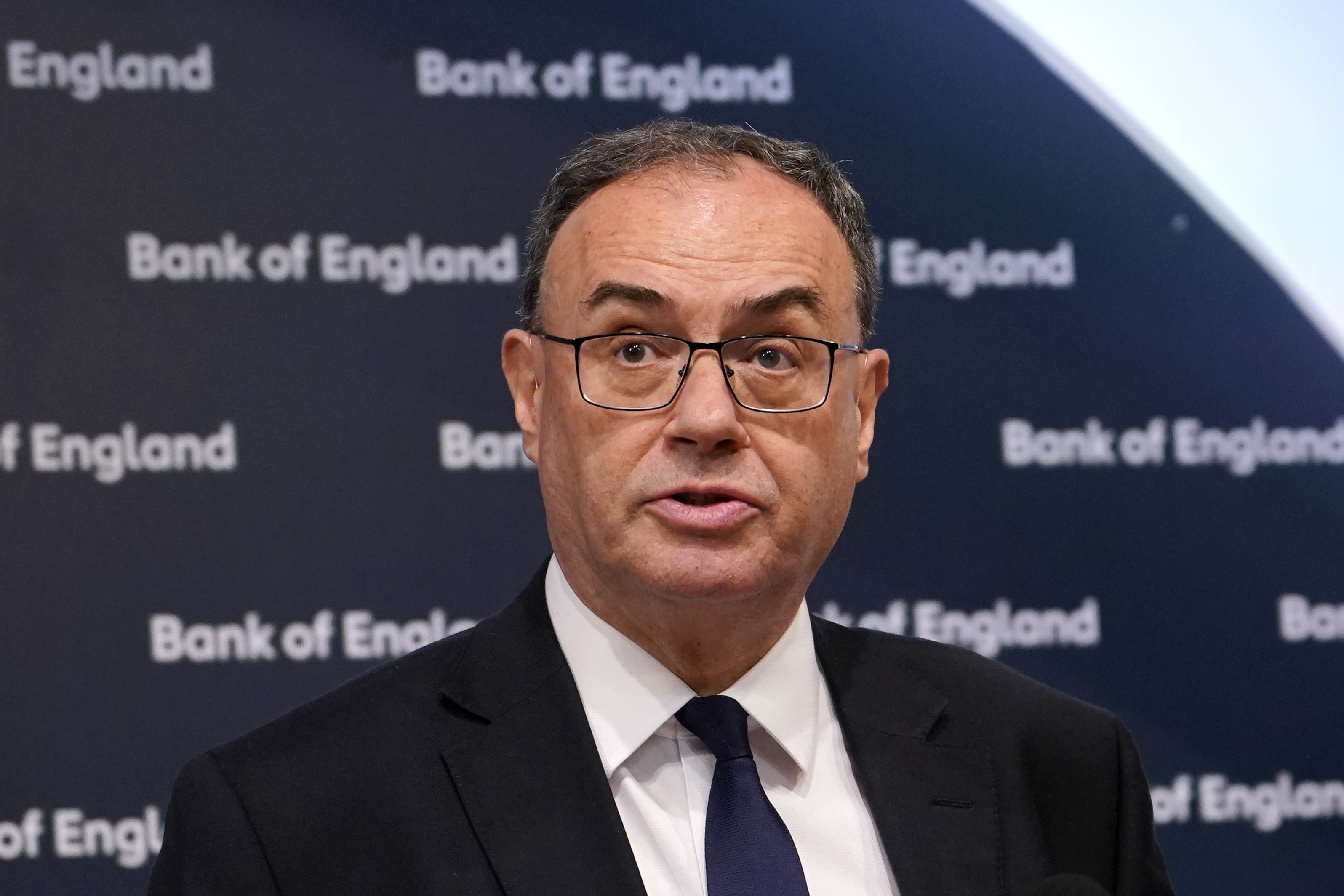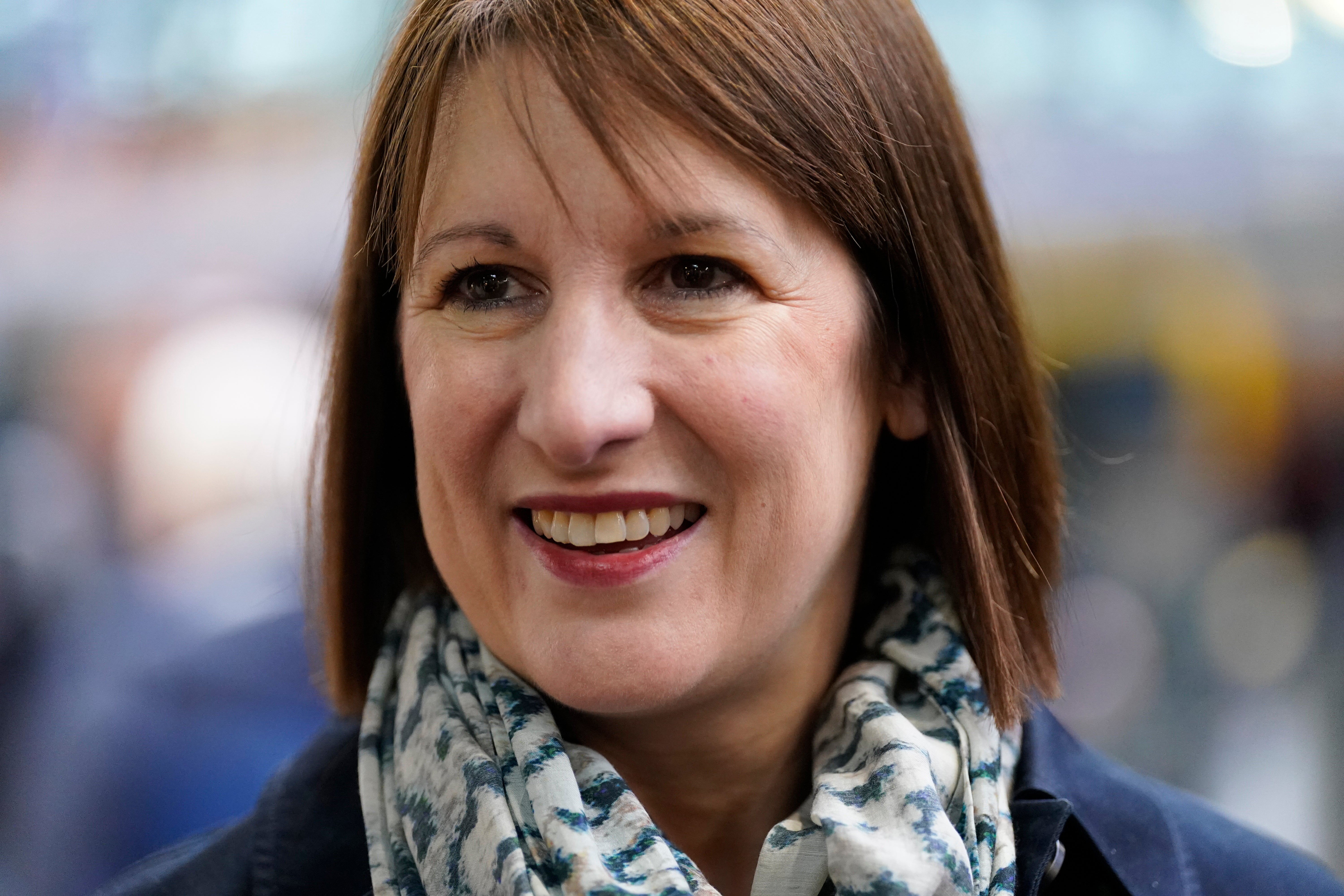Interest rates live updates: Bank of England base rate cut to help slash mortgage bills
Inflation fell below the Bank of England’s 2% target in September for the first time in three years
Your support helps us to tell the story
From reproductive rights to climate change to Big Tech, The Independent is on the ground when the story is developing. Whether it's investigating the financials of Elon Musk's pro-Trump PAC or producing our latest documentary, 'The A Word', which shines a light on the American women fighting for reproductive rights, we know how important it is to parse out the facts from the messaging.
At such a critical moment in US history, we need reporters on the ground. Your donation allows us to keep sending journalists to speak to both sides of the story.
The Independent is trusted by Americans across the entire political spectrum. And unlike many other quality news outlets, we choose not to lock Americans out of our reporting and analysis with paywalls. We believe quality journalism should be available to everyone, paid for by those who can afford it.
Your support makes all the difference.The Bank of England has cut interest rates for the second time this year, in good news for mortgage-holders and other borrowers.
Policymakers at the Bank of England opted to reduce interest rates to 4.75 per cent today, down from 5 per cent. They had also been cut by 0.25 percentage points in August, which marked the first reduction since 2020, before being kept the same in September.
As a result, homeowners with tracker mortgages will see their payments fall by an average of £28.98 a month, while standard variable rates should reduce by an average of £17.17, according to UK Finance.
The decision by rate-setters today comes after chancellor Rachel Reeves announced nearly £70bn of extra annual spending, funded by business-focused tax hikes and additional borrowing, and as the UK awaits the impact of a second Donald Trump presidency in the United States.
Bank of England governor Andrew Bailey struck a more cautious tone on future cuts, but insisted there is a “good and encouraging” direction on falling inflation in spite of “greater global uncertainy”.
How will the interest rate cut affect you? From inflation to mortgages
Low interest rates are used to discourage people from piling up their money in savings. High interest rates encourage saving because people get a better return for the money you are putting away. This in turn has an effect on the price of goods.
When interest rates are low, people might spend more and this might cause retailers to put up the price of goods. When rates are high, demand might fall as people put more money into their savings pots. This, in theory, should drive down the prices of goods and services.
However, rising prices are not a direct result of interest rate changes. Other things, including the supply of money and underlying costs, affect prices and cause inflation. Interest rates can only help manage inflation, not control it directly.
My colleagues Albert Toth and Jabed Ahmed have more details on what impacts the latest cut will have:

How will the interest rate cut affect you? From inflation to mortgages
Here’s what the Bank of England’s interest rate cut could mean for you
‘Process of repairing Britain has begun,’ says TUC
The Trades Union Congress has welcomed the latest interest rate cut and urged the Bank of England to keep reducing its base rate.
“Today’s rate cut was the right decision, and the Bank of England should now keep moving with further reductions,” said TUC chief Paul Nowak.
“With inflation below the government’s target, ongoing cuts will support the economy and relieve cost of living pressures on households and businesses.
“It’s good that the Bank’s forecast has recognised the gains to growth that October’s Budget will bring. With increased investment, stronger public services and lower interest rates, the process of repairing and rebuilding Britain has begun.”
Tory shadow chancellor hits out at Labour over new inflation forecasts
Shadow chancellor Mel Stride said: “This will be welcomed by millions of homeowners and builds on the work the Conservatives did in office to hold inflation down.
“However, the independent OBR and the Bank of England set out that as a result of Labour’s choices in the Budget last week inflation will be higher. The government must not undo the hard work the last government did.”
Pound rallies after Bank announces rate cut and inflation forecasts
The pound strengthened after the Bank's latest rate cut and as it hiked its inflation outlook, partly due to measures announced in the Budget.
Sterling lifted 0.4 per cent against the US dollar to $1.293, and was 0.2 higher against the euro at €1.202.
Likely that interest rates will keep falling, says governor Andrew Bailey
Governor Andrew Bailey said UK inflation falling below its 2 per cent target meant policymakers had been able to cut rates to their lowest level since last June.
“We need to make sure inflation stays close to target, so we can’t cut interest rates too quickly or by too much,” he said.
“But if the economy evolves as we expect, it’s likely that interest rates will continue to fall gradually from here.”

Bank weighs impact of increased minimum wage and employer taxes
As it forecast that policies in Rachel Reeves’ Budget would push inflation up by 0.5 per cent in 2026, the Bank of England said increases to employer taxes and the minimum wage could prove to be “more inflationary” if prices are passed on to consumers.
Laying out the expected effects of the policies on Thursday, policymakers wrote: “On the one hand, higher labour costs could constrain firms’ cash-flows if there was limited pass-through to pricing. This in turn could moderate wage growth and further loosen the labour market through reduced labour demand.
“On the other hand, the increase in labour costs could prove more inflationary if upward pressure on prices were passed on to consumers.”
Budget forecast to increase inflation by 0.5 per cent in 2026, Bank of England says
Inflation is expected to stay higher for longer than previously forecast following spending and tax rises announced in Rachel Reeves’ Budget, the Bank of England said.
Headline consumer price index (CPI) inflation is set to return to the Bank’s 2 per cent target in the second quarter of 2027, about a year later than previously forecast.
Inflation will peak at about 2.8 per cent in the third quarter of next year, before falling during 2026 and early 2027, partly pushed up by energy prices and the Budget measures.
Policies in the Budget are forecast to add just under 0.5 percentage points to inflation in 2026.
Interest rate cut is welcome news for millions of families, says Rachel Reeves
Following the Bank of England’s decision to cut the base rate, chancellor Rachel Reeves, said: “Today’s interest rate cut will be welcome news for millions of families, but I am under no illusion about the scale of the challenge facing households after the previous government’s mini-budget.
“This government’s first Budget has set out how we are taking the long-term decisions to fix the foundations to deliver change by investing in the NHS and rebuilding Britain, while ensuring working people don’t face higher taxes in their payslips.”

Bank of England cuts base rate by 0.25 per cent
The Bank of England’s Monetary Policy Committee has voted eight to one to cut interest rates by 0.25 per cent.
In a boost for borrowers, the base rate now sits at 4.75 per cent. It marks the second cut since 2020, after rate-setters narrowly opted to reduce rates from a 16-year high of 5.25 per cent in August.
Bank rate-setters expected to vote eight to one in favour of cut
Economists expect that the Bank of England’s nine-member Monetary Policy Committee will vote in favour of a cut, after voting five to four in favour of the most recent cut in August.
A Bloomberg survey found economists expect the vote will be split eight to one this time, with Catherine Mann expected to be the only hawk opposing a cut.
Subscribe to Independent Premium to bookmark this article
Want to bookmark your favourite articles and stories to read or reference later? Start your Independent Premium subscription today.

Join our commenting forum
Join thought-provoking conversations, follow other Independent readers and see their replies
Comments